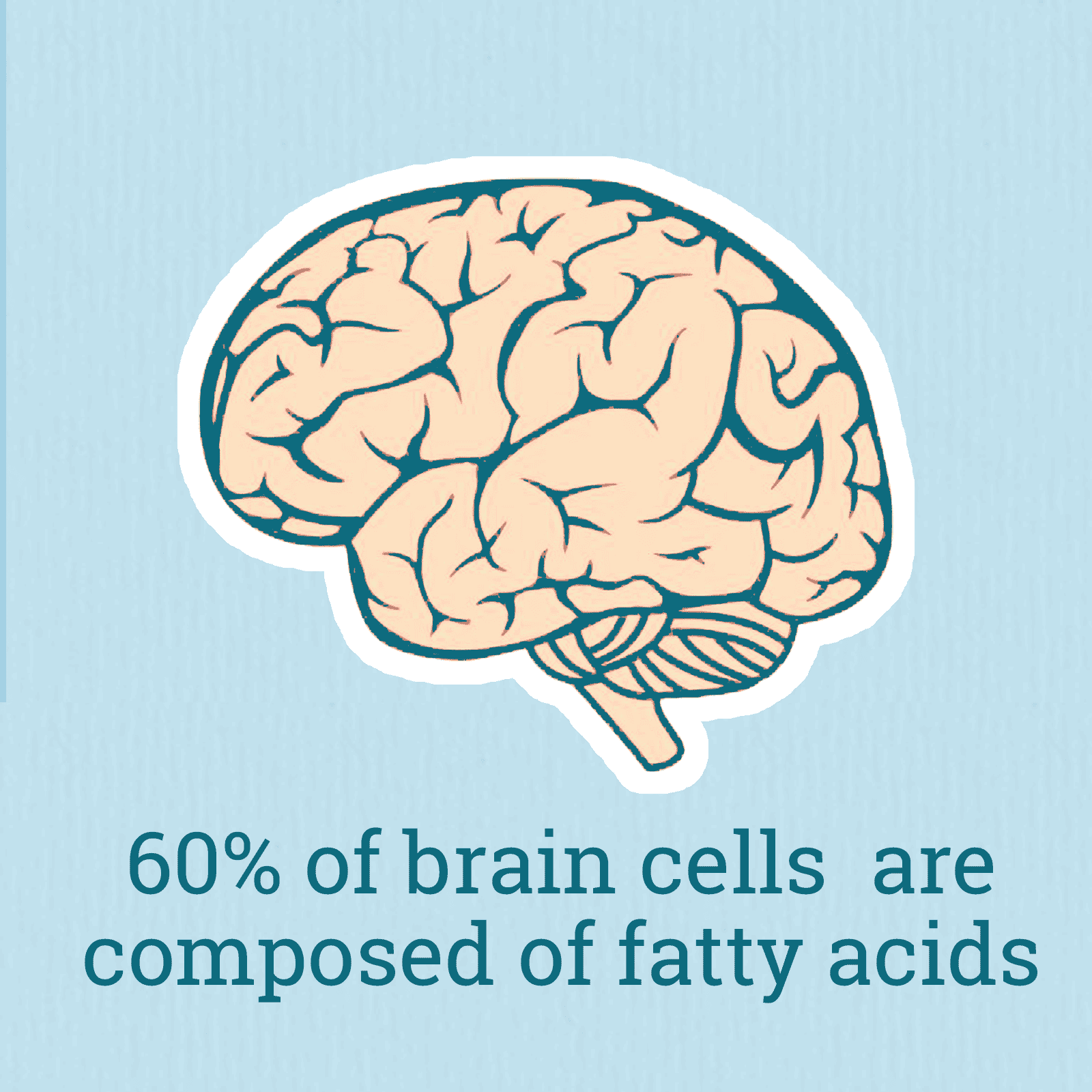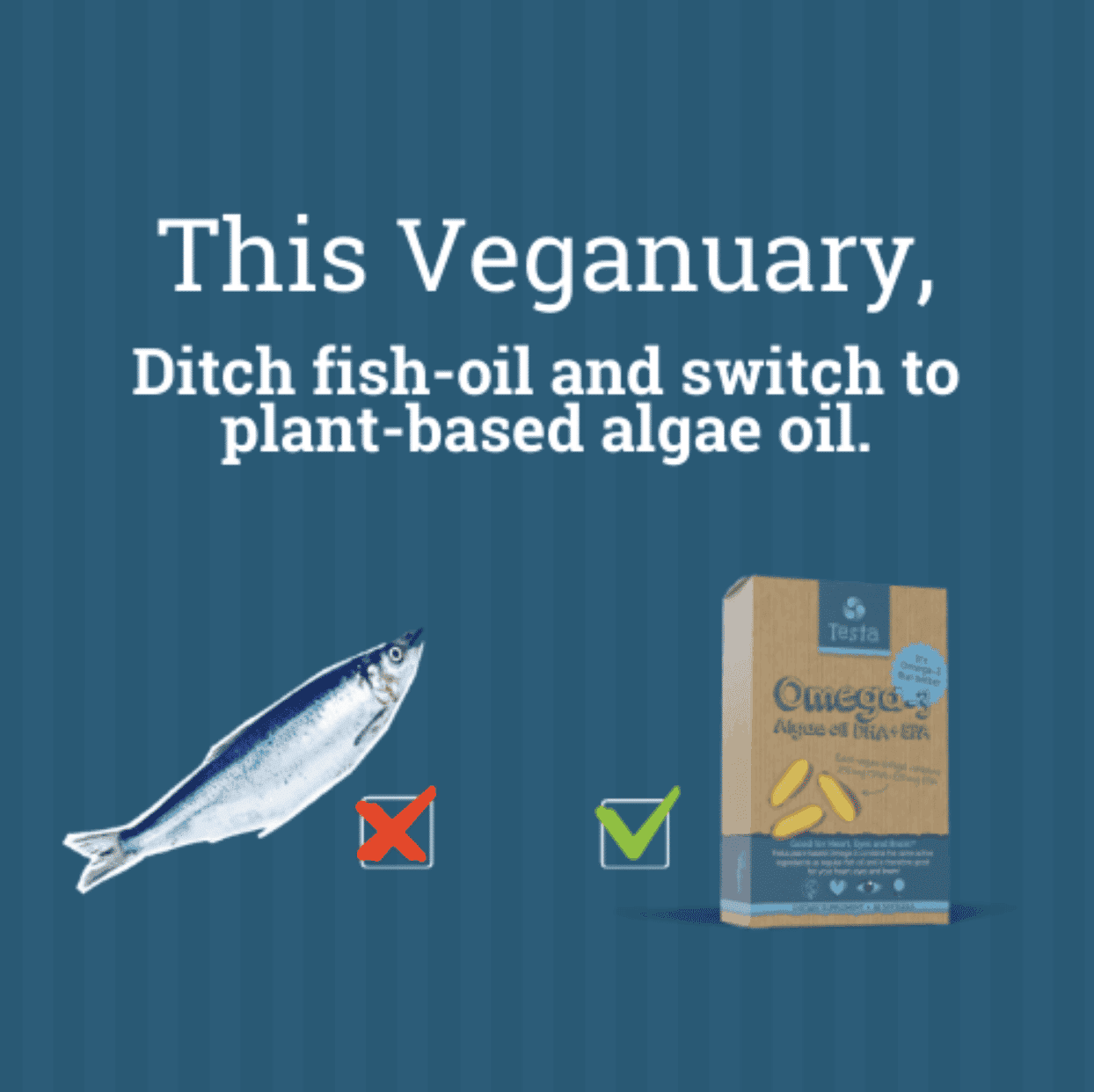Omega-3 to supplement your Veganuary
If you’ve ever been on the fence to try veganism, now is your chance to take the plunge! A 31-day pledge to try a vegan lifestyle, Veganuary is a non-profit organization that invites people from around the world to try a plant-based diet in the month of January. The organization also provides pledgees with tips on nutrition, recipes, and even a celebrity e-cookbook. Over 1 million people have pledged to give Veganuary a go in the coming year.
Veganuary hopes to inspire people to stick with a plant-based diet beyond January. They dream of a vegan world, one that does not drive animal extinction and pollute the atmosphere, but instead protects the planet as well the health of its people.

Switching over to a new diet can be tricky
You need to make sure to intake all the right nutrients and supplements— such as Omega-3. Omega-3, essentially, contains fatty acids that our body cannot produce on its own but is associated with maintaining good health. According to a study, 90% of the world population’s diet lacks Omega-3. They are hard to come by in our food, and this is truer for plant-based diets. For this reason, Omega-3s have to be consumed as supplements.
What kinds of Omega-3s are important to us?
Omega-3s are a kind of fat the body cannot produce but still may have an essential role to play in its functioning. Primarily, there are three kinds of Omega-3 fatty acids that are important to us. These are alpha-linolenic acid (ALA), eicosapentaenoic acid (EPA), and docosahexaenoic acid (DHA). Each of these fatty acids is not only vital to maintaining normal health but also brings about positive effects.Â

Why we need Omega-3 in our diet!
There are multiple health benefits brought about by Omega-3 that are substantiated by scientific research.
The fatty acid content of Omega-3 may work to regulate and maintain normal levels of blood pressure. DHA is found in large amounts in our retinas and vital in maintaining eye health. Moreover, EPA and DHA have been proven to have positive effects on our bodily functions, some as crucial as the working of our heart and brain. DHA is an important building block of the brain and plays a role in the functioning of the brain. DHA together with EPA is considered to have a positive contribution to the normal functioning of the heart.
Omega-3 deficiency in our bodies can lead to hindrance in healthy eyesight development in children. A severe deficiency may also bring about dermatitis and other undesirable skin conditions such as dry skin and rashes.

Veganism and Omega-3
While ALA can be found in plant oils such as flaxseed and soybean, DHA and EPA are most commonly found in fish and other seafood products. This is where it gets tricky— a vegan diet is rich in ALA but lacking in DHA and EPA.
Ideally, an adult male should consume 1.6 grams of Omega-3 per day whereas an adult female should intake 1.1 grams per day. This recommended quantity may be phenomenally higher for carrying and breastfeeding mothers. Since Omega-3s are commonly available in the form of fish oil capsules, this produces a conundrum for people that follow a plant-based diet.
While there are a plethora of vegan sources that contain Omega-3 such as hemp and chia seeds, walnuts, flaxseed oil, canola oil, walnut oil, soybean oil, tofu, tempeh, and soy milk, they are rich mainly in ALA. The body has to convert this ALA into EPA and then DHA, which is not very good at. For this reason, it is wise to consider consuming Omega-3 supplements to ensure that all your nutritional needs are met.

FRESH SUPPLY OF OMEGA 3
SUBSCRIPTION
Easily determine your amount and frequency and never run out of fresh vegetable omega-3 again! Your omega-3 will never be older than 3 months from production to consumption. Of course, you can also make separate orders.

